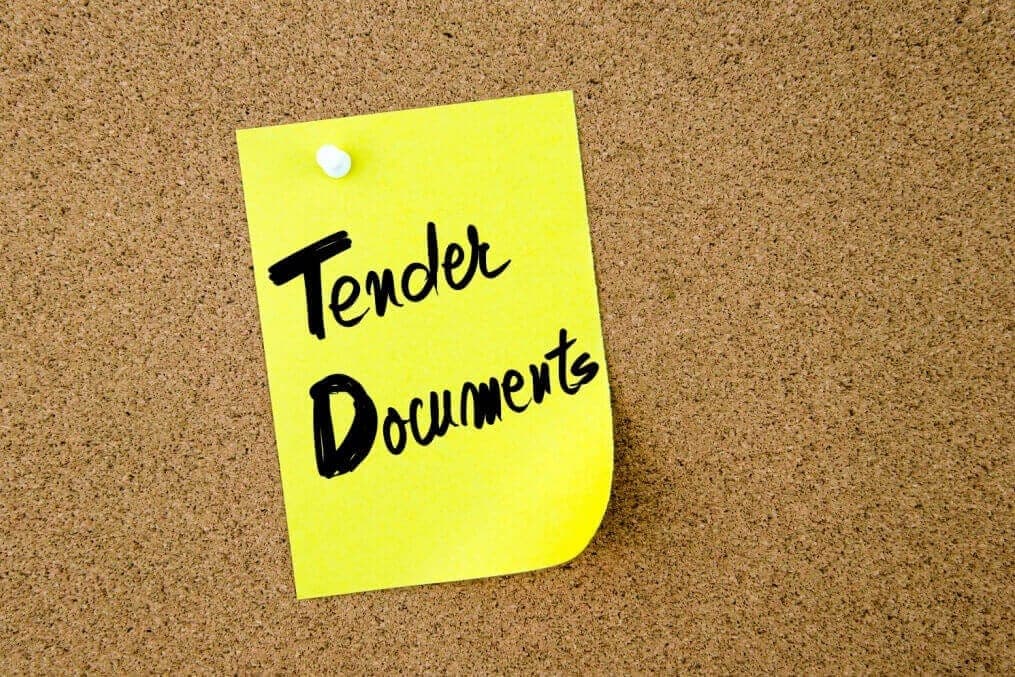
Important Clauses of Tender
The Tender should have Following Important Clauses:
a) Introduction:
01. Tender Inviting authority: Who is inviting the tender, Name of the owner / Authorised representative
02. Name of work: Brief scope of work i.e. what the contractor is supposed to do
b) Description of work:
03. Type of tender:
i) Labour base / Material base
ii) Method of quoting
- Item rate
- Percentage rate
- Lumpsum
- Area based
04. Tender Notice: This is must for public / government authorities.
05. Estimated Amount of work: This will give an idea to the contractor about the quantum of work
06. Time period for completion of work
c) Important Instructions for Bidders:
07. Tender fee, if any
08. Amount of EMD and in whose favour it is to be drawn and Mode of submission of tender fee & EMD by i.e. either by Draft / Cheque / Bank Guarantee
09. Mode of submission of tender: By Regd. AD / Speed post / Courier / Hand delivery etc.
10. Validity of tender: The tender must state the period for which the quoted rates shall remain valid. Normally it is 90 days i.e. within which time the bidder cannot withdraw his offer.
11. Class of Registration for contractor: Required in case of Government works only.
12. Pre-bid meeting – Date & Place: Needed in case of a large and complex works
13. Bid evaluation criteria / Pre qualification criteria: Needed in case of a large and complex works
d) Financial/Commercial:
14. Basic rates for cement, steel, any other materials: Cement and steel are the major materials and forms major cost components of the house. They also keep on varying from time to time, so the contract should clearly state that who will bear the escalation or increase in prices during the period of contract. Sometimes basic rates prevailing during the time of signing the contract are stated and if the price increase the owner will bear the burden by paying increase to the contractor. Similarly in case of price decrease the owner will get the benefit.
15. Material Advance if any: Owner may agree to provide advance on materials once the material reaches the site, without waiting for the same being used for construction. This facilitates liquidity to the contractor thereby reducing his financial cost.
16. Mobilization Advance if Any: To reduce the financial cost of the contractor the owner may advance from 1% to 10% of the total cost depending upon the nature of work to the contractor. This mobilization advance is subsequently recovered from the running bills of the contractor.
17. Free Supply of Material by Client if Any: There are so many materials where the owner will like to use materials of his own choice, brand and quality. The owner choose to supply the material directly free of cost and the contractor will quote only for labour and other ancillary required materials.
18. Supply of Water and Power: No work can proceed without water and power. The cost of both during construction is substantial. Hence there has to be a clarity as to who will bear the cost.
19. Security Deposit & Release of Security Deposit: 2% to 10% amount from the running bill is deducted by the owner and retained as security deposit. This is retained as a guarantee for successful performance of the contract by the contractor and also as a guarantee for repairing of defects during defects liability
20. Escalation clause if any: The price of the materials as well as labour keeps on increasing. Hence when the contract is for more than one year it is better to have escalation clause wherein the contractor will be compensated for increase in prices. There are so many standard formulas inclusive by Reserve bank based on which the escalation can be worked out. If no escalation is provided in the contract, the contractor will load his rates while quoting, which will always be on the higher side. Hence in order to be the fair and just to both parties it is better to include the escalation clause.
21. Taxes / Service Tax / VAT / GST etc.: The burden of all the taxes has to be clearly stated in the contract, so that no subsequent disputes arises. Normally end user has to bear the tax burden.
22. Payment procedure: Terms and mode of payment are must. The contract should also state the method of periodical payments and the time duration within which the bill shall be prepared and paid including period of honouring payment.
23. Price schedule / Price bid: This is must. Every item should have its rates as well unit. If it is a lumpsum contract it should include all details as to what is included in scope of work and what is excluded. Similarly it would also apply for “area basis contract”.
e) Technical :
24. Detailed works specification: The contractor submit his rates based on the drawings and specifications. Hence each item of work should be followed by detailed specification which will clearly state about the quality of materials and workmanship, method of testing of materials, works etc. This will also state the method of measurement for each item.
25. List of Approved makes of materials: The approved brands for important materials should also to be stated in the contract. This will avoid the disputes regarding brands and quality of materials.
26. Quality Assurance plan including Mandatory tests: The contract should also specify the quality assurance plan, method of testing materials, frequency of testing materials and works and system of checks and balances to maintain the quality of work.
27. Soil data / bore hole data: For large work it is better to include soil investigation report while inviting the tenders, which will give an idea about the depth of foundation, water table etc. to the contractor, so that during the progress of the work there are no disputes w.r.t. construction of foundation.
28. Tender drawings including List of drawings: To correctly understand the nature and scope of works and to supplement the item description and specifications drawings should be included in the contract.
29. Battery limit: If there are more than one construction sites or more than one contractors on one site, the contract must very clearly state the limits of each contract i.e. from where the work will start, where it will end, what is included and what is not included in everyone’s scope.
f) Guarantee of Work:
30. Defects liability period: This is a period during which the contractor has to guarantee that no defects in building will arise and if it arises, it will be repaired by the contractor at his own cost. Generally the security deposit is withheld with the owner for the defect liability period. Defects Liability period is normally one year after date of completion. The Security Deposit is released after successful completion of defects liability period.
g) Legal:
31. Liquidated damages, if any etc.: When time is essence of the contract, penalty in the form of liquidated damages is imposed on the contractor for delay in the work. It is levied per day subject to a maximum of 10% value of the work, say Rs. 1000/- per day.
32. Arbitration: It is better to include this clause, so that the dispute resolution mechanism is decided to resolve the disputes, which may arise during the progress of the work.
h) Forms:
Forms of contract: Standard proforma for Bank guarantee, frequency of tests, proforma of guarantee for water proofing, anti termite etc., should be incorporated in the contract.
i) Special Conditions of Contract:
33. Special conditions of contract if any : Special conditions related to the site conditions, nature of work or payment terms must be clearly stated.
j) General Conditions of Contact:
35. General Conditions of Contract
Also Read:
What is Meant by EMD?
Procedure for Registration of Property































